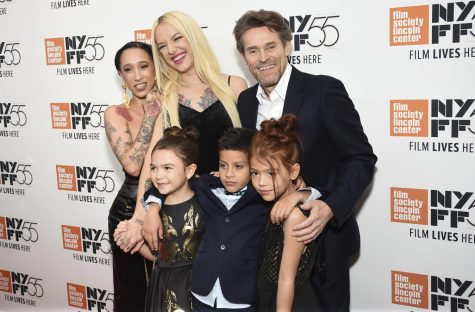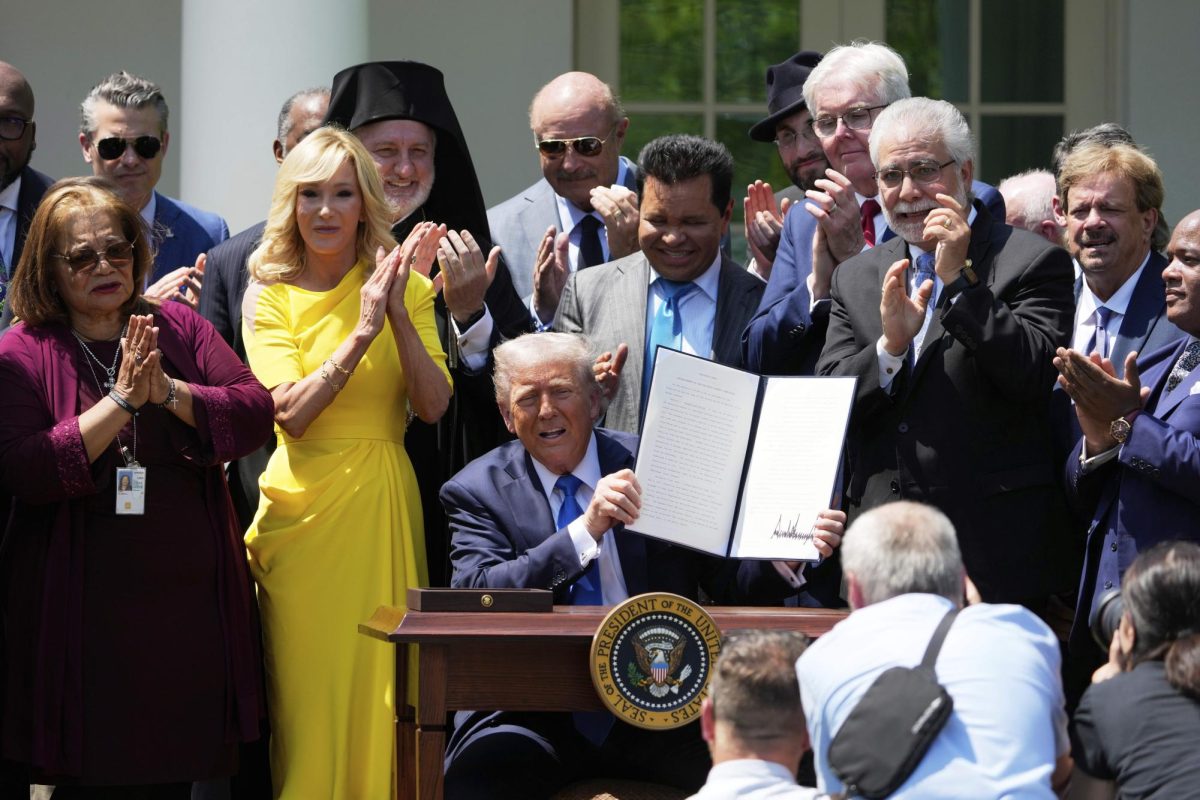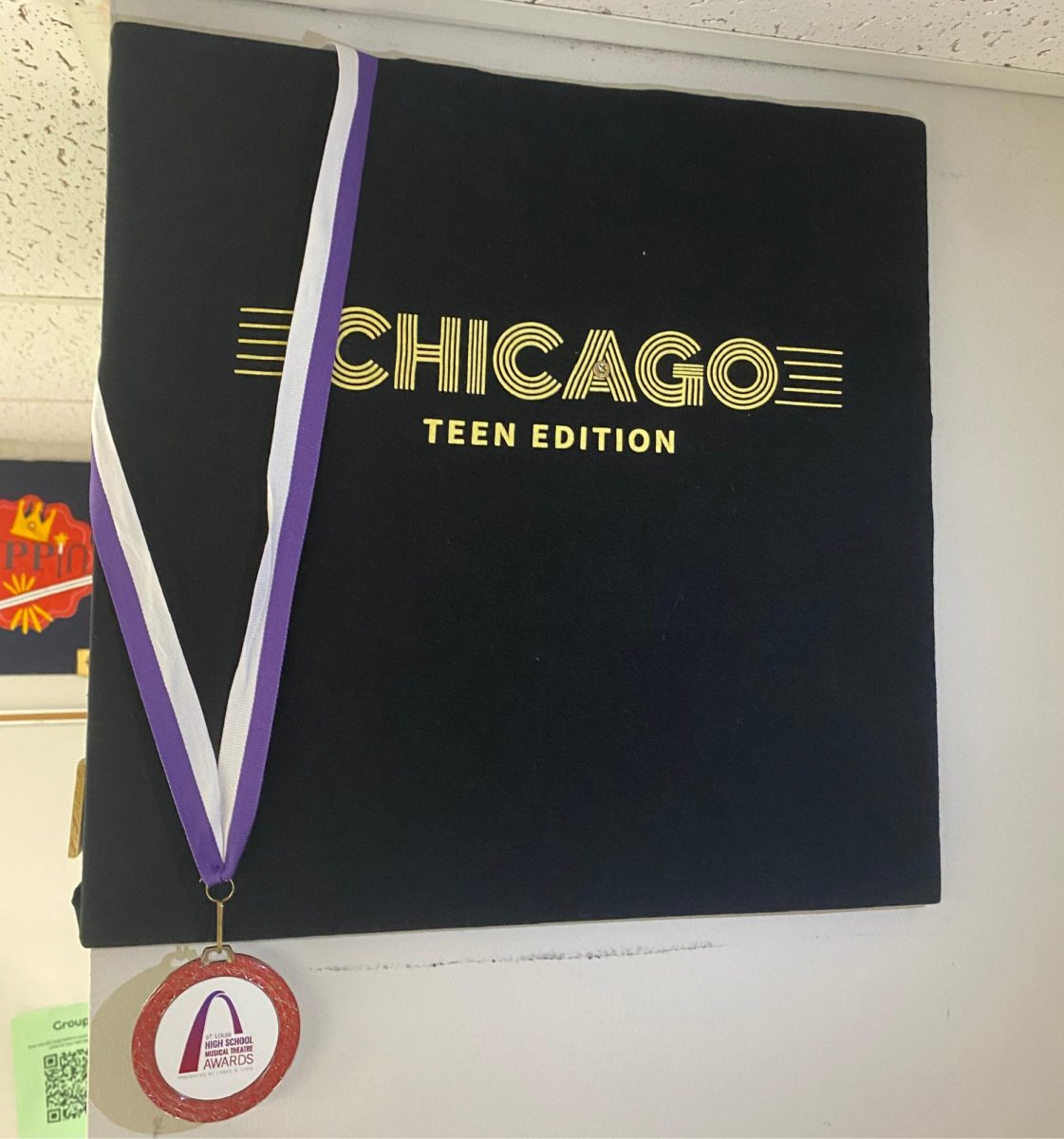‘The Florida Project’ Illuminates Plight of Underclass
March 9, 2018
Set beyond the glow of the ‘Happiest Place on Earth,’ “The Florida Project” offers an arresting picture of poverty.
Shown through the eyes of 6-year-old Moonee (Brooklynn Prince), the film is often shapeless, formless, lacking in direction. There are brief moments of intense calamity and softer instances of everyday hardship intermingled in such a fashion as to precisely paint a realistic portrayal of an impoverished family.
Moonee has grown up with her mother Halley (Bria Vinaite) for her entire life. There is no mention of a back story for Halley, of a family or Moonee’s father; it is just the two of them.
The film takes place during the summer and features high jinks from Moonee and her friends Scooty (Christopher Rivera), Dicky (Aiden Malik) and Jancey (Valeria Cotto). Moonee and her friends are unable, financially, to entertain themselves at Disney World, so they invent their own games—games that are frequently too mature for young children.
They plead with tourists for money to share a single ice cream cone or burn pillows in fireplaces of abandoned homes. They run about Orlando, completely unsupervised, cursing and yelling other words 6-year-olds should not know.
Moonee’s life feels typical to her. She wakes up, eats waffles that she and Scooty received from the diner his mother works at, plays at the complex, bathes and falls asleep in the motel she and her mother live at.
Moonee does not realize that her bath time is her mother’s work hour—or the reason why the rap music blares on the stereo to cover up other sounds. She does not understand that most families do not live in motels.
Filled with both the maturity of years she has not accumulated and an innocence of those she has, Brooklynn Prince delivers a complex performance of childhood—a childhood occupied by a mother who cares for Moonee while being unable to care for herself.
In her breakout role, Bria Vinaite creates such a vivid character portrait that the audience both sympathies with her character while simultaneously disparaging her.
Willem Dafoe portrays the Magic Kingdom Motel manager, Bobby, who represents all efforts to prevent poverty and the minimal results that abound from such efforts. His performance is stellar.
This quiet, powerful film is easily missed among this year’s Oscar winners. I mean, how could an important film about poverty compete with “grinding Nemo,” as author Sarah Rees Brennan so artfully stated?
But this film should not be forgotten or overlooked. It should not be forgotten that Orlando has a 16.2 percent poverty rate, according to the Orlando Sentinel. It should not be forgotten that outside of the Magic Kingdom, there are plenty of kids who don’t know where their next meal will come from.
And yet, as the film itself says, “(It’s my favorite tree) ‘cause it’s tipped over, and it’s still growing.”











